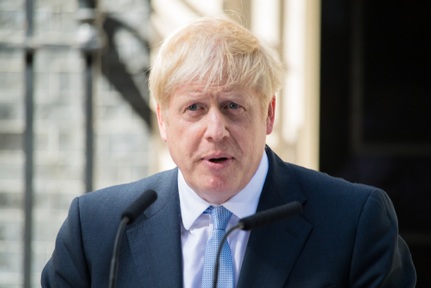Boris Johnson says new artificial intelligence lab will spot 'deadly signs of dementia'
Prime Minister Boris Johnson has announced £250 million will be spent on a National Artificial Intelligence Laboratory to detect patients most at risk of dementia and other deadly diseases to deliver earlier diagnosis.

New treatments for dementia, cancer and heart disease are being promised by Mr Johnson with hospital patients benefiting from beds being 'freed up' and people treated closer to home, as a result of improvements to care using AI.
The AI lab will use data to aid healthcare professionals to estimate future needs of beds, drugs, devices or surgeries by using predictive models and will identify which patients could be more easily treated in the community to reduce pressure on the NHS.
Boris Johnson said the NHS is "leading the way in harnessing new technology to treat and prevent, from earlier cancer detection to spotting the deadly signs of dementia.
“Today’s funding is not just about the future of care though. It will also boost the frontline by automating admin tasks and freeing up staff to care for patients.
“My task to ensure the NHS has the funding it needs to make a real difference to the lives of staff and patients. Transforming care through artificial intelligence is a perfect illustration of that.”
Matt Hancock: 'Predictive, preventive, personalised care'
Health Secretary Matt Hancock said: “We are on the cusp of a huge health tech revolution that could transform patient experience by making the NHS a truly predictive, preventive and personalised health and care service.
“I am determined to bring the benefits of technology to patients and staff, so the impact of our NHS Long Term Plan and this immediate, multimillion pound cash injection are felt by all. It’s part of our mission to make the NHS the best it can be.
"The experts tell us that because of our NHS and our tech talent, the UK could be the world leader in these advances in healthcare, so I’m determined to give the NHS the chance to be the world leader in saving lives through artificial intelligence and genomics.”
AI is already being developed in a number of hospitals to predict cancer survival rates and cut the number of missed appointments.
The AI lab is also expected to:
- Improve cancer screening by speeding up the results of tests, including mammograms, brain scans, eye scans and heart monitoring, helping to save millions of lives a year.
- Build systems to detect people at risk of post-operative complications, infections or requiring follow-up from clinicians, improving patient safety and reducing readmission rates.
- Automate routine admin tasks to free up clinicians so more time can be spent with patients.
Simon Stevens, NHS England chief executive, said: “Carefully targeted AI is now ready for practical application in health services, and the investment announced today is another step in the right direction to help the NHS become a world leader in using these important technologies."
Latest News
 29-Jul-24
Dementia Bus gives carehome.co.uk staff insight into life with dementia
29-Jul-24
Dementia Bus gives carehome.co.uk staff insight into life with dementia
 27-Jul-23
UK's top home care agencies in 2023 revealed
27-Jul-23
UK's top home care agencies in 2023 revealed
 30-Nov-22
A quarter of older people keep their falls secret from family
30-Nov-22
A quarter of older people keep their falls secret from family
 29-Nov-22
'Covid-19 has not gone away' say terminally ill
29-Nov-22
'Covid-19 has not gone away' say terminally ill
 28-Nov-22
IT consultant who received poor care opens 'compassionate' home care business
28-Nov-22
IT consultant who received poor care opens 'compassionate' home care business